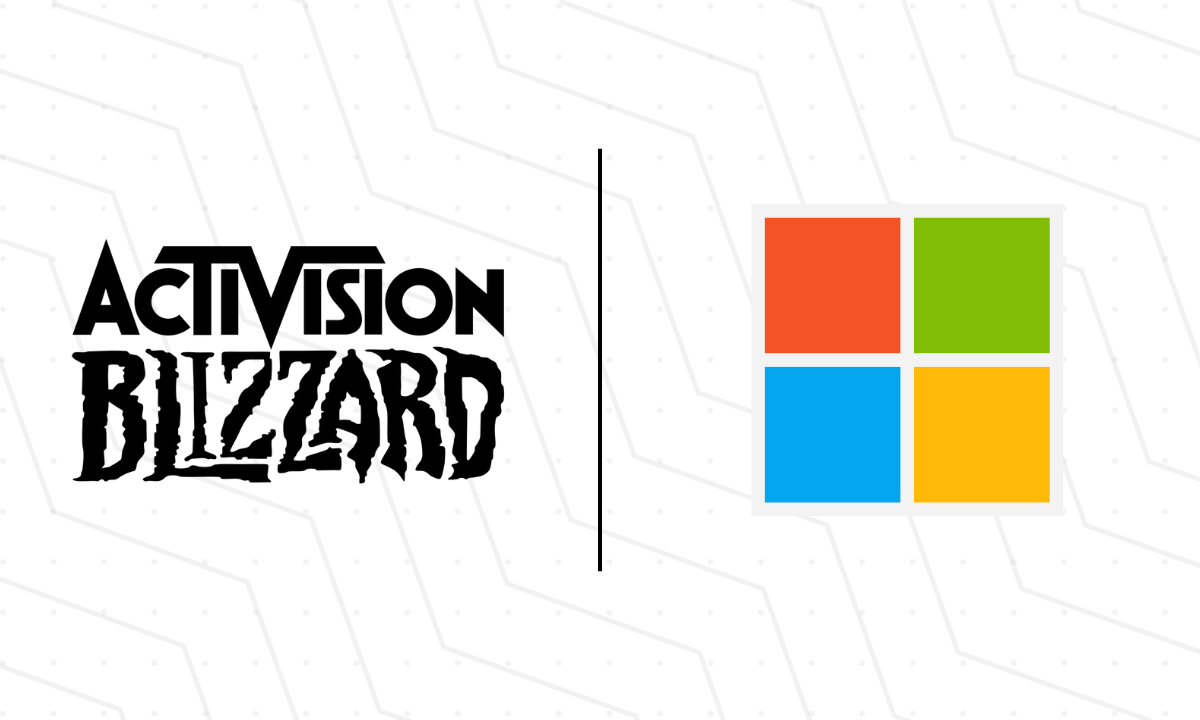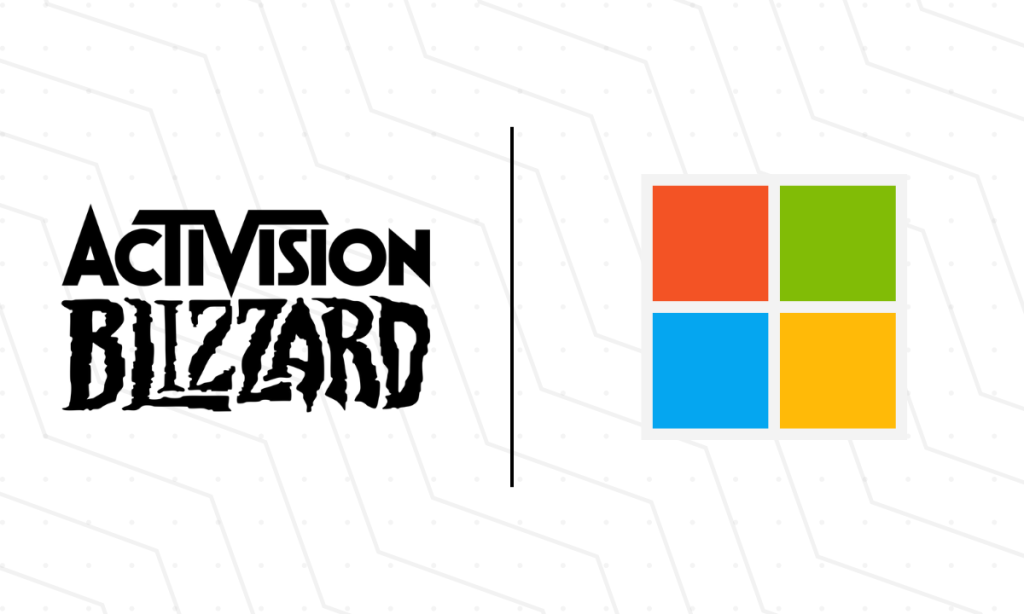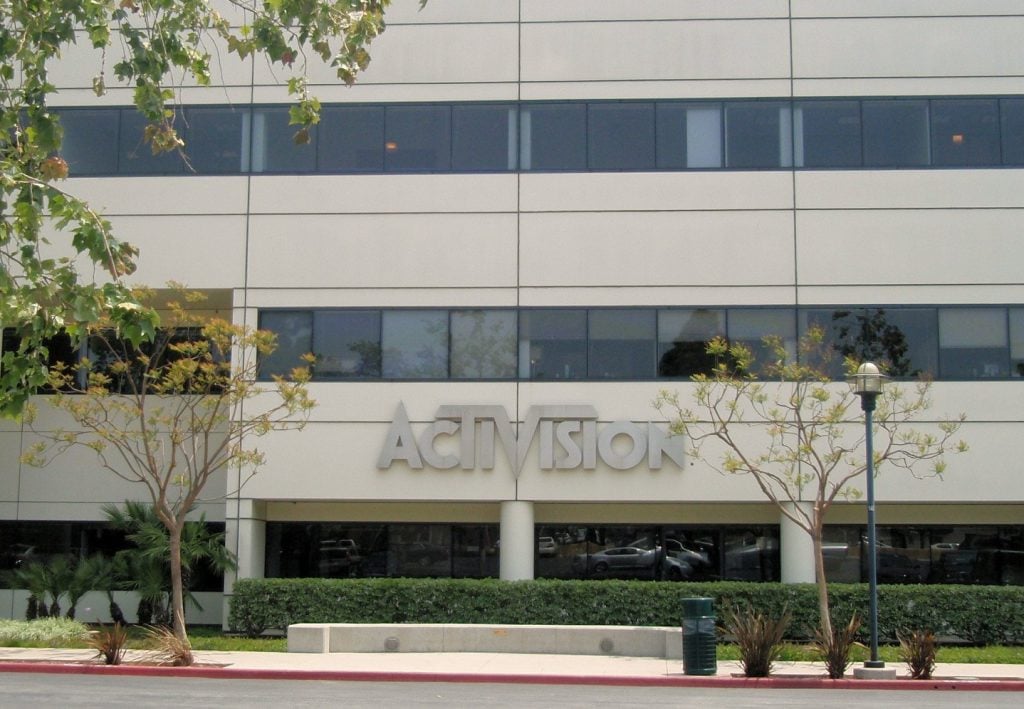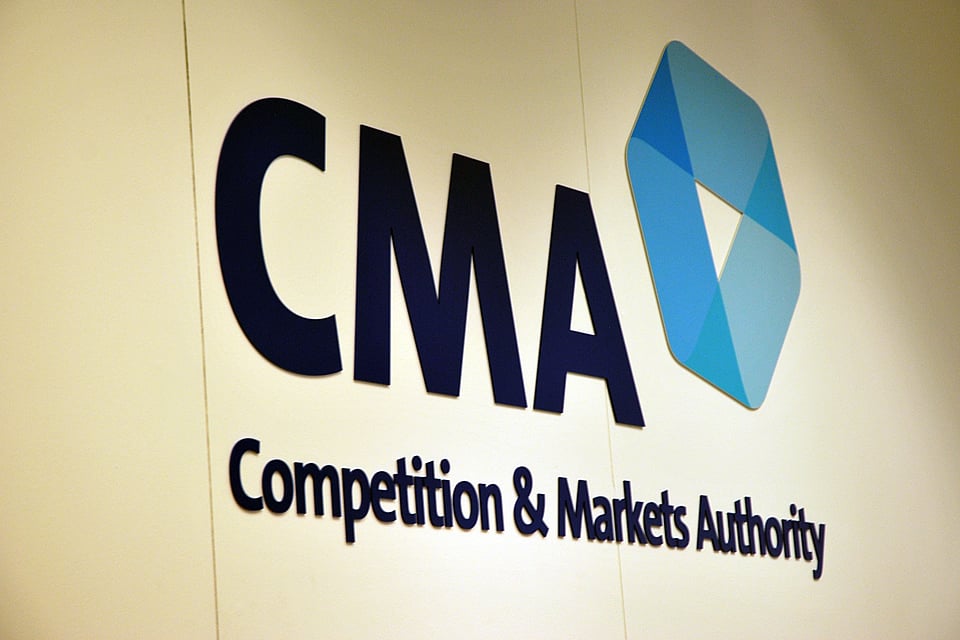Notifications
ALL BUSINESS
COMIDA
DIRECTORIES
ENTERTAINMENT
FINER THINGS
HEALTH
MARKETPLACE
MEMBER's ONLY
MONEY MATTER$
MOTIVATIONAL
NEWS & WEATHER
TECHNOLOGIA
TV NETWORKS
VIDEOS
VOTE USA 2026/2028
INVESTOR RELATIONS
COMING 2026 / 2027
ALL BUSINESS
COMIDA
DIRECTORIES
ENTERTAINMENT
FINER THINGS
HEALTH
MARKETPLACE
MEMBER's ONLY
MONEY MATTER$
MOTIVATIONAL
NEWS & WEATHER
TECHNOLOGIA
TV NETWORKS
VIDEOS
VOTE USA 2026/2028
INVESTOR RELATIONS
COMING 2026 / 2027
About Me
 Latinos Media
Latinos Media Latinos Media provides all types of news feeds on a daily basis to our Members
Posted by - Latinos Media -
on - June 2, 2023 -
Filed in - Esports -
-
701 Views - 0 Comments - 0 Likes - 0 Reviews

 (ESI Illustration) Logo credit: Activision Blizzard / Microsoft
(ESI Illustration) Logo credit: Activision Blizzard / Microsoft
Tech giant Microsoft made headlines in early 2022 by announcing its intention to buy Activision Blizzard, one of the world’s most-valuable gaming companies, for $68.7bn (~£50.5bn). The news took the world by storm, and was quickly labelled one of the most influential deals in history of gaming.
Yet it’s June 2023, and the two companies are still separate due to a number of legal hurdles, lawsuits and inquiries from governments all around the world.
The merger may still go ahead, but no one truly knows when. We’ve compiled a recap to keep you abreast of the Activision Blizzard deal’s trials and tribulations.
Due to the scale of the deal, regulators around the world fear that this acquisition may hurt competition and give Microsoft — which already owns Xbox — too much power in the gaming market.
Fears have centred around the potential effect on market share in the console gaming market. Microsoft could, regulators argue, make Activision Blizzard’s games (including the ultra-successful Call of Duty franchise) exclusive to its consoles, thereby hurting competition with rivals Sony and Nintendo. Other concerns have been around the potential impact on market share in the growing cloud gaming market.
Even though the two companies are both US-based, if the deal is not approved in other countries, the newly-merged entity would risk not being able to conduct business in those countries.
It must be mentioned that the acquisition of Activision is not the first big-money spending spree for the company. Microsoft owns Halo developer 343 Industries, Obsidian Entertainment and Forza developer Playground Games, and Bethesda owner ZeniMax (for which it paid more than $6b). This would, however, be Microsoft’s largest purchase.
The Microsoft Activision Blizzard merger has already been approved in several markets around the world. These include the European Union, Ukraine, Saudi Arabia, Brazil, Serbia, Chile, Japan, South Africa, South Korea and China.
The first countries to accept the merger were Serbia, Brazil, Saudi Arabia and Chile in 2022, with other countries approving it in the spring of 2023. The latest country to approve it was South Korea, on May 30, 2023.
As of right now, the merger is currently pending in the United States after the Federal Trade Commission preemptively sued to block the deal in December 2022.
Meanwhile, in the UK, the Competition and Markets Authority (CMA) blocked the deal in April 2023. In a surprise decision, the CMA said it would not allow the deal to go ahead primarily because of the consequences it would have on the cloud gaming market. However, Microsoft and Activision Blizzard have appealed.
The European Union’s European Commission did previously issue a complaint to the companies in February 2023, but acquiesced after receiving a list of 10-year commitments from Microsoft, and it eventually let the deal go through on May 2023.
New Zealand and Australia are still reviewing the merger.
When the news of the acquisition first broke, in January 2022, Reuters ran the headline “Microsoft to gobble up Activision in a $69 billion metaverse bet”. This was at the height of the metaverse trend, and was (and still is) the largest gaming industry deal in history. Microsoft is said to have wanted to acquire Activision Blizzard to further improve its presence in the gaming industry, the metaverse, and to consolidate itself as the de facto king of cloud gaming.
With Activision’s titles under its umbrella and with Xbox and its Game Pass and XboX Live platforms to support it, few companies could challenge Microsoft in the gaming field. Acquiring Activision Blizzard gives Microsoft access to multi-million dollar IP’s such as Call of Duty, Overwatch, Diablo and WarCraft franchises, as well as studios such as Treyarch and Infinity Ward, at a time where video game IP is proving highly valuable — just see the success of HBO’s The Last of Us adaptation.
The company would also become a major stakeholder in esports, and get access to esports leagues and platforms such as Major League Gaming, the Overwatch League and the Call of Duty League.
Couple all this with Activision’s internal problems and affairs, and the fact that its CEO Bobby Kotick was investigated by the SEC, one can see what makes the deal appealing to both sides. Microsoft’s offer came during the height of legal and public backlash over lawsuits alleging widespread sexual harassment problems at the publisher — and while it’s hard to think of $69bn as a discount, its PR problems may have given Microsoft a better deal.
 Activision Blizzard headquarters in Santa Monica, California. Image via: Wikimedia Commons
Activision Blizzard headquarters in Santa Monica, California. Image via: Wikimedia Commons
Unfortunately for Microsoft, the scope of the deal and its effect on the gaming industry caught the eyes of many regulators, governments, competitors and agencies worldwide. One of the first critics of the move was Sony, its largest competitor in the field of gaming consoles and a staunch opponent of the acquisition. Sony wanted to be sure that Microsoft will keep all of its newly-acquired IP’s on PlayStation, a direct competitor to Xbox, so is naturally against the deal.
It was in the beginning of February that the United States Federal Trade Commission started investigating the deal. Considering the scope, it was apparent that this will not be another swift deal for Microsoft, a fact that was proven multiple times afterwards.
The FTC formally announced a lawsuit on December 8, 2022, putting the deal under much more pressure. The suit is still pending as of mid 2023, but the FTC’s argument was that Microsoft was trying to “harm competition in high-performance gaming consoles and subscription services by denying and degrading rivals’ access to its popular content.”
The problem was, among other things, that regulators worried that Microsoft would make Call of Duty and other highly-popular games exclusive to their platforms, thus forcing players to migrate or lose the ability to play them. The FTC lawsuit is still pending, with no definitive dates planned.
The next big blow to the merger was made by the CMA, UK’s regulator, when it provisionally opposed the deal in January 2023. Many expected the CMA to allow the merger after it released a statement in March saying one of its three key concerns had been addressed by new evidence. However, in April 2023, the government body prevented the proposed purchase over concerns about the “future of the cloud gaming market”. Microsoft did present a solution to the CMA, which was deemed not adequate and thus rejected.
As a result, both Microsoft and Activision Blizzard will work to appeal the decision, but the appeal is set to happen in late July 2023. Until then, we are looking at a stalemate in the merger.
 The deal’s fate now rests largely on the CMA. Image credit: Competition and Markets Authority (CMA)
The deal’s fate now rests largely on the CMA. Image credit: Competition and Markets Authority (CMA)
The acquisition would set Microsoft up as a key player in esports at a difficult time for the industry. Its involvement may offer a mark of legitimacy at a time when esports is going through a downturn in investor confidence and many companies are struggling financially.
Importantly, Activision Blizzard’s Overwatch League and Call of Duty League are floundering. Franchise owners reportedly started collective bargaining against the company due to high costs and missed promises on revenue. Most sponsors also left the leagues following Activision Blizzard’s sexual harassment lawsuits.
In a recent financial filing, Activision Blizzard quietly stated that its leagues “continue to face headwinds which are negatively impacting the operations and, potentially, the longevity of the leagues under the current business model.”
In light of that, big-money and big-name support from Microsoft could help turn around their fortunes.
On the other hand, its potential new owner might not be as invested in Activision Blizzard’s grand franchising experiments, and make decisions based on their current financial footing — which could potentially see a downsizing, or even cancellation, of the leagues.
Activision Blizzard and Microsoft will want to find a way to get along with regulators in the US and UK in much the same way they did with the EU, by agreeing to a set of demands. But the UK already rejected Microsoft’s remedies when it blocked the deal. Overturning that decision via the appeals process will mean convincing regulators that the CMA made a mistake in its first decision, a difficult task.
Right now, Microsoft is trying to win over as many governments as it can, with China and the European Union bringing good bargaining power to the table. After the EU approved the deal in May 2023, Alex Haffner, a competition partner at London law firm Fladgate, told Esports Insider: “Critics of the CMA’s stance, of which there have been many, will inevitably seize on [the] decision as proving the point made that the UK’s regulatory regime is too rigid and stifles innovation. Microsoft and Activision’s lawyers will also use the decision to provide greater ballast to their appeal of the CMA’s decision, which is in the works.”
However, it remains to be seen whether and how the deal could go ahead if the UK fails to give its blessing. July 2023 will bring further developments in this high-stakes deal — for better or for worse.